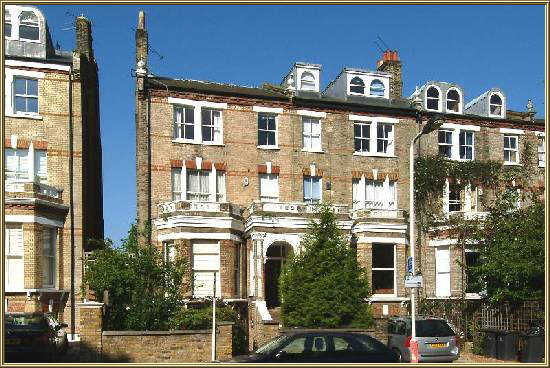84: UK Market Update and Economic Trends
09-05-2006
PropertyInvesting.net team
Buy-to-let Outlook
An interesting article chronicling ten years of buy-to-let investment was published in the Sunday Times on Sept 3rd. The number of buy-to-let mortgages is 17% higher in 2006 than 2005, though some of these may be re-mortgages.

Prices are now higher than at any previous period so risks have increased that prices could come down. That said, in the UK the combination of:
- Robust employment
- Net inward migration of 300,000 a year (immigration 650,000, emigration 350,000)
- Relatively low interest rates
- GDP at 2.5%
- Wage growth of 4%
- Housing shortage only 200,000 homes being build a year, with demand for about 300,000+ (due to smaller households, immigration and population growth)
- Relaxing of borrowing criteria (multiples, shared ownership etc)
..all imply prices could continue to rise however, there is a 50% chance interest rates will rise again on Thursday 7th September to 5% - this could severely slow the housing market and could even lead to a drop in many places.

PropertyInvesting.net maintain our stance that London and southern England has a lower risk of house price collapse than areas in the Midlands, north and west of England. This is because of the massive financial wealth created in the financial services sector of London the capital being the key international global centre for mergers, services and trade. Areas within commuting distance to London and second home areas popular with wealthy individuals in SE England (e.g. Cornwall, Devon, Dorset) will likely also show robust growth. The rich are getting richer and this will continue to have a positive impact of property prices in prime London locations such as Mayfair, Belgravia, Kensington, Chelsea, Notting Hill, Hampstead and Fulham. International money coming from Asia, Europe and the Middle East also helps. Indeed, if there is oil price stability at 70 $/bbl and no global crisis occurs, the current severe shortage of homes in prime London location (range £0.7 to £5.0 million bracket) is likely to continue.
Interest Rates
PropertyInvesting.net are becoming increasingly pessimistic that UK rates will rise to 5% within the next two months. The GDP growth in 2006 has surprised most people with the UK running at 2.6% (rather than the anticipated 2.0%). Meanwhile, oil and gas prices are higher than envisaged and hence this is starting to feed slowly through to inflation. Without the stronger growth and higher oil prices, CPI inflation would probably have been 2% instead of its current 2.4%. Since last months surprise interest rate rise (we had this at 40% chance early August) retail spending has increased and the economy shows no signs of slowing. Hence some time soon, rates are likely to edge up further to 5%. The logical reason being  the Bank of Englands job is to target inflation at 2% or close to it so if inflation is 2.4%, they normally consider raising rates! If we take all the emotion and vested interests out the hard-nosed bankers will raise rates on Thursday! The good news is many mortgage lenders have been slow to feed the last rise through to their customers we hope this trend continues. The UK also considers rate trends in Euroland and the USA both have risen strongly recently with USA likely to take a holding stance for a while and Euro almost certain to rise by 0.25% to 0.5% within the next 6 months. Hence this will likely give UK bankers support for raising rates to help keep Sterling high, which also reduces inflationary pressures. So all you buy-to-let investors be careful to budget in an extra a least 0.25% increase in rates in the next 6 months possibly up to an extra 0.5% (with 0.25% coming as soon as this Thursday).
the Bank of Englands job is to target inflation at 2% or close to it so if inflation is 2.4%, they normally consider raising rates! If we take all the emotion and vested interests out the hard-nosed bankers will raise rates on Thursday! The good news is many mortgage lenders have been slow to feed the last rise through to their customers we hope this trend continues. The UK also considers rate trends in Euroland and the USA both have risen strongly recently with USA likely to take a holding stance for a while and Euro almost certain to rise by 0.25% to 0.5% within the next 6 months. Hence this will likely give UK bankers support for raising rates to help keep Sterling high, which also reduces inflationary pressures. So all you buy-to-let investors be careful to budget in an extra a least 0.25% increase in rates in the next 6 months possibly up to an extra 0.5% (with 0.25% coming as soon as this Thursday).
Can you still make money with high asset prices?
The risks go up with high asset prices which make it even more critical you have offers accepted on purchased property that are significantly below the true market value. You might need to put in ten low-ball offers before someone who is a highly motivated seller actually accepts. This takes time, focus, effort and dedication plus a lot of financial discipline. To go through this system or process is not rocket science but it requires some proper management and organization. If you purchase a property for say £200,000 which is 10% below true market value, then you renovate and add 10% to the value, you are up 20%, or £40,000 in a short space of time. This will protect you in case prices drop.
Purchase: Our advice is view 1000 properties on the internet, enquire about 30, view 15, make low-ball offers sequentially on the top 5 at say 12% below marketed value. If no-one accepts, go back to your top property choice, then offer 10% below asking price if no, go to property 2. Follow this process until someone accepts! If you cannot be bothered with this process youll end up making lower returns. Another option is to seek out a property search agent most charge 1-3% of the property value and many have a standing charge of £500.
 Renovation: There is also significant returns that can be made in purchasing property for renovation even if the prices are dipping as long as you buy a marketable property in a good popular area. Most investors cannot be bothered with major renovation projects this takes time, money, management and it risks large cash sum and hence exposes an investor. That said, returns can be very high if a dilapidated property is purchased for a good price, the building work is quick and low cost then the property is sold quickly (or rented out quickly). All risks but if you get it right the rewards are there.
Renovation: There is also significant returns that can be made in purchasing property for renovation even if the prices are dipping as long as you buy a marketable property in a good popular area. Most investors cannot be bothered with major renovation projects this takes time, money, management and it risks large cash sum and hence exposes an investor. That said, returns can be very high if a dilapidated property is purchased for a good price, the building work is quick and low cost then the property is sold quickly (or rented out quickly). All risks but if you get it right the rewards are there.
Commercial: Returns of up to 10% in the UK on long, secure and low risk business lease contract can be achieved by expert commercial property investors. Competition has increase significantly over the last 4 years for any type of commercial property. Many buy-to-let investors have got into this market some believe asset prices are already over-inflated, others believe the wave of UK-REIT money entering the market will further boost prices. Make sure you do not buy peripheral small retail premises many of these will close down and business will go broke with internet shopping increasing rapidly. That said, there is a business model around converting such shops to residential property then renting or selling on many investors and developers have made millions doing this in the UK. With the rapid expansion of internet

shopping, large out-of-town warehouses and logics centres seem a good investment opportunity. Also, with the massive increase in the number and usage of cars despite $70 /bbl oil prices, infra-structure supporting cars near major thorough-fares (M25, M4, M11, M6, M5) are worth considering. This might be storage, retail, services, offices. Investment in office space in prime London locations West End, City, Docklands - and the M4 corridor (near Heathrow) are also worth considering. We advise avoiding manufacturing commercial premises unless these factories are in good locations, have closed and can be converted at low cost to residential premises.
UK Market Update
Hometrack reported a 0.4% house price increase in August despite the interest rates rise. Meanwhile, Nationwide reported a 0.8% increase in August. However, just to confuse us all, Rightmove.co.uk reported a 1.6% decrease in asking prices in the month up to August 18th with London being worst hit? Again, mixed signals. Now everyone is back from their summer holidays, we would anticipate prices increasing at a slower rate up to end November if interest rates do not rise. If interest rates rise by another 0.25% to 0.5%, we expect prices to level off with a 20% chance a steep fall towards in 2006. If oil prices stay below 70$/bbl risks reduce significantly this should lower inflation to a more sustainable level say - 2.2%. We will give you regular monthly updates its all looking a bit uncertain and it can go in any direction unfortunately.
US Market
Interest rises from 1% to 5% have taken their toll housing starts are down. Prices could correct soon. For any overseas investor looking to start in the USA best hold off and observe for a while now is not a good time! If prices drop say 20% if/when rates rise this is the time to buy!
Mainland Europe (Eurozone)
Same applied here interest rates are rising and demand is softening in most mature markets. Treat very carefully. Some of the lowest risk property investment areas are ones positively impacted by high oil prices not many examples, but Norway, NE Scotland are two. Eastern Europe is a different market and is likely to keep rising.
 Rental Market
Rental Market
The rental sector is definitely motoring on nicely. The 600,000 new entrants from eastern Europe in the last two years have massively boosted the rental sector. Very few of these entrants initially buy property most will likely stay for say 2-5 years then return with their savings. The level of new entrants is likely to tail off, although another wave could occur from Romania and Bulgaria next year when these new member states join the EU. Because the UK only builds about 200,000 net new homes a year, and households are getting progressively smaller, you can see that any housing shortage is not likely to go away. This should both boost house prices and rental returns as long as interest rates dont shoot up and the economy motors in at 2+%. It is widely thought that these new EU workers keep a lid on wage inflation and boost GDP. Its thought by some leading economists that interest rates would be at last 0.25% but likely 0.5% higher without these workers contributing. Furthermore, the population growth of the UK in part related to these European entrants, has lead to a 0.4% additional GDP growth in the UK compared to what would have occurred without them. This might explain why many economists thought GDP would be around 2% for 2006 in late 2005 (PropertyInvesting.net included), but its currently running at 2.4%! Not sure whether this was planned by the Treasury probably not but it seems to have had a positive economic impact on the UK so far. It also helps offset the slowdown in public sector growth which would tend to impact the north of England. Interesting to note the EU entrants are fairly evenly distributed around England. London is not a focus area for the entrants this might be because the cost of living is so expensive (60,000 added to the 7 million population).

Eastern Europe
All you buy-to-let investors this will make you think. Buy-to-let investors are widely thought to have got in ahead of the first time buyer in the last 1990s then helped price them out of the market in the early 2000s. They are sitting on high value asset portfolios. This gain of property wealth has been massive. The Eastern European workforce who have now settled in the UK will go back in 2-5 years with their proceeds to purchase property back home. You know what we are going to say next. House prices in such member states are bound to rise with this capital inflow. Leaving it for 5 years from now will be too late. If you want to make stellar returns, with the risks that go with it the time is right. But watch  out for land and property title issues, legal issues, corruption and buying at inflated prices. Also, many parts of eastern Europe are depopulating many of the brightest people are leaving for the west though they are likely to return one day with a lot of cash. Difficult to judge whether rural, country, seaside, town or city property is the best investment opportunity in such countries like Poland, Bulgaria, Slovakia etc. To know how the local market will develop takes quite some research and I would not necessarily trust all of what you hear or read on the local investment scene. A safe bet could be to purchase second hand low priced apartments in central capital cities, in good rental locations that can also be upgraded over time. Regenerating areas could do very well. We could also imagine that a successful Polish worker returning from the west might buy a historic central city apartment in Krakow for example this city is beautiful and it will probably also develop into a major holiday destination in future years and its not too far from all that Russian oil money as well!
out for land and property title issues, legal issues, corruption and buying at inflated prices. Also, many parts of eastern Europe are depopulating many of the brightest people are leaving for the west though they are likely to return one day with a lot of cash. Difficult to judge whether rural, country, seaside, town or city property is the best investment opportunity in such countries like Poland, Bulgaria, Slovakia etc. To know how the local market will develop takes quite some research and I would not necessarily trust all of what you hear or read on the local investment scene. A safe bet could be to purchase second hand low priced apartments in central capital cities, in good rental locations that can also be upgraded over time. Regenerating areas could do very well. We could also imagine that a successful Polish worker returning from the west might buy a historic central city apartment in Krakow for example this city is beautiful and it will probably also develop into a major holiday destination in future years and its not too far from all that Russian oil money as well!
Our team hope you have found this newsletter instructive and insightful. Below is a list of last months property news articles you might wish to refer to. Look forward to updating you next months. If you ave any comments of enquiries, please contact us on enquiries@propertyinvesting.net
back to top


 the Bank of Englands job is to target inflation at 2% or close to it so if inflation is 2.4%, they normally consider raising rates! If we take all the emotion and vested interests out the hard-nosed bankers will raise rates on Thursday! The good news is many mortgage lenders have been slow to feed the last rise through to their customers we hope this trend continues. The
the Bank of Englands job is to target inflation at 2% or close to it so if inflation is 2.4%, they normally consider raising rates! If we take all the emotion and vested interests out the hard-nosed bankers will raise rates on Thursday! The good news is many mortgage lenders have been slow to feed the last rise through to their customers we hope this trend continues. The  Renovation: There is also significant returns that can be made in purchasing property for renovation even if the prices are dipping as long as you buy a marketable property in a good popular area. Most investors cannot be bothered with major renovation projects this takes time, money, management and it risks large cash sum and hence exposes an investor. That said, returns can be very high if a dilapidated property is purchased for a good price, the building work is quick and low cost then the property is sold quickly (or rented out quickly). All risks but if you get it right the rewards are there.
Renovation: There is also significant returns that can be made in purchasing property for renovation even if the prices are dipping as long as you buy a marketable property in a good popular area. Most investors cannot be bothered with major renovation projects this takes time, money, management and it risks large cash sum and hence exposes an investor. That said, returns can be very high if a dilapidated property is purchased for a good price, the building work is quick and low cost then the property is sold quickly (or rented out quickly). All risks but if you get it right the rewards are there.
 Rental Market
Rental Market
 out for land and property title issues, legal issues, corruption and buying at inflated prices. Also, many parts of eastern Europe are depopulating many of the brightest people are leaving for the west though they are likely to return one day with a lot of cash. Difficult to judge whether rural, country, seaside, town or city property is the best investment opportunity in such countries like
out for land and property title issues, legal issues, corruption and buying at inflated prices. Also, many parts of eastern Europe are depopulating many of the brightest people are leaving for the west though they are likely to return one day with a lot of cash. Difficult to judge whether rural, country, seaside, town or city property is the best investment opportunity in such countries like 
